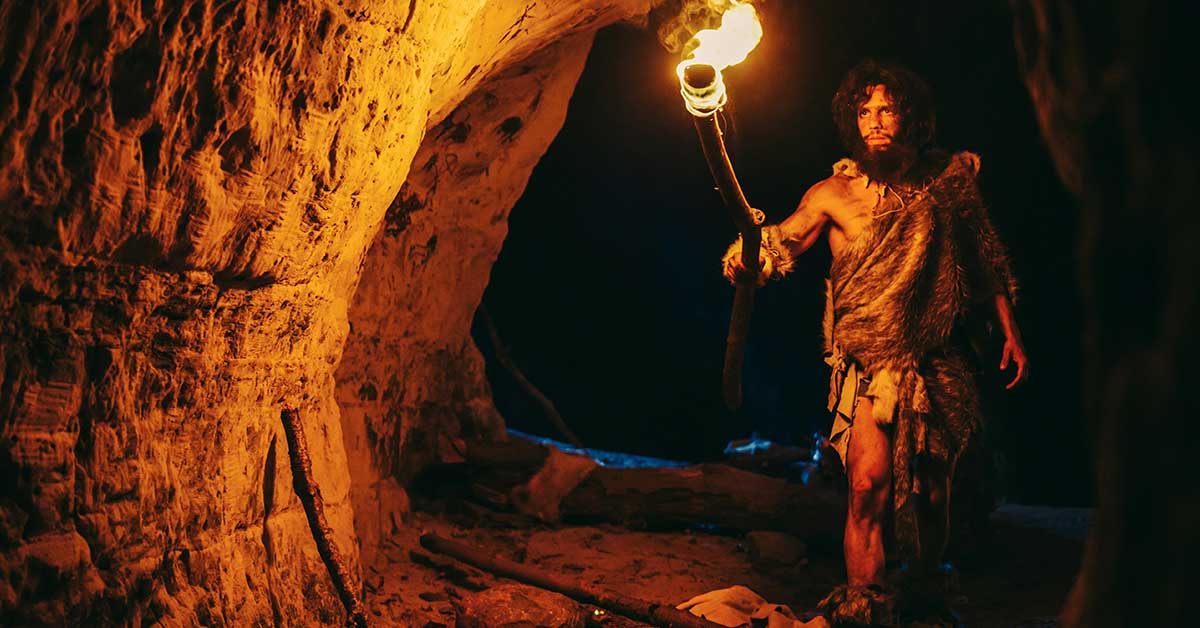Contrary to popular belief, new research reveals that some Stone Age people primarily consumed a plant-based diet, rather than a Paleo one. Recent studies have shed light on the dietary habits of the Iberomaurusians, a Paleolithic group from North Africa, suggesting their diet was rich in plant matter and not heavily reliant on meat.1
Debunking the Paleo Diet

The Paleo diet, popularized in modern times, is based on the presumed eating habits of our Paleolithic ancestors, emphasizing meat, fish, fruits, and vegetables. However, findings from a study published by the Nature Ecology & Evolution Journal challenge this notion. The study indicates that the Iberomaurusians had a predominantly vegan diet, comprising wild pulses, acorns, and pine nuts.
Read More: 7 Vegan Foods High In Protein That Make Meat Obsolete
Isotope Analysis Findings

Researchers used isotope analysis to study the chemical signatures in the teeth and bones of Iberomaurusians. This method allowed them to deduce dietary patterns by identifying isotopes like carbon, nitrogen, and zinc. The analysis revealed that the Iberomaurusians consumed a significant amount of plant-based foods, negating the belief of a predominant Paleo diet, similar to early agricultural societies.
Evidence from Dental Remains

The presence of cavities in the teeth of Iberomaurusians suggests a diet high in fermentable starchy plants, such as beets, corn, rye, and cassava.2 This dental evidence supports the theory that their diet was rich in carbohydrates, contrary to the meat-heavy diets often associated with hunter-gatherers.
Comparison with Natufians

The Iberomaurusians were contemporaries of the Natufians, another group known for their plant-rich diet. The Natufians, from western Asia, eventually transitioned to agriculture by cultivating and domesticating wild plants. This parallel raises questions about why similar agricultural practices did not develop simultaneously among the Iberomaurusians. It even calls into question why the Paleo diet was believed to be so popular a belief for the time as well.
Read More: Infants and Veganism: Can the two go together?
Impact of Environment and Resources

The study suggests that the dietary habits of early humans were influenced by the availability of local resources. The diverse plant resources in North Africa likely contributed to the Iberomaurusians’ plant-heavy diet. Researchers found botanical remains of charred sweet acorns, pistachios, pine nuts, wild oats, and pulses at the Taforalt site.3
Hunting Practices

While the Iberomaurusians’ diet was predominantly plant-based, they were not strict vegetarians. Evidence of cut marks on the bones of Barbary sheep and gazelles indicates that they also hunted and consumed animal protein (just not per Paleo diet extremes). This mixed diet showcases the flexibility and adaptability of early human dietary practices.
Significance of the Findings

The research challenges the conventional view of early human diets being predominantly meat-based. Klervia Jaouen, a co-author of the study, emphasized the importance of these findings in understanding the diversity of pre-agricultural diets. “There’s more diversity than what we believed,” she stated.
Future Research Directions

The study opens new avenues for further research on the dietary habits of ancient humans. Jaouen and her team aim to document the transition from Paleolithic to Neolithic diets in North Africa, comparing the dietary habits of different populations over time. This research will enhance our understanding of how human diets evolved with environmental and cultural changes.
Read More: Lavender Cupcakes with Honey Cream Cheese Frosting (Gluten-free and Vegan Options)
Sources
- “This Ancient Diet Goes Against Everything We Know About Early Humans.” Inverse. Elena Spivack. May 1, 2024.
- “Experts find cavemen ate mostly vegan, debunking paleo diet.” Independent. Kaleigh Werner. May 1, 2024.
- “Paleo diet? Study reveals new insight on what Stone Age humans really ate.” CNN. Katie Hunt. April 30, 2024.

